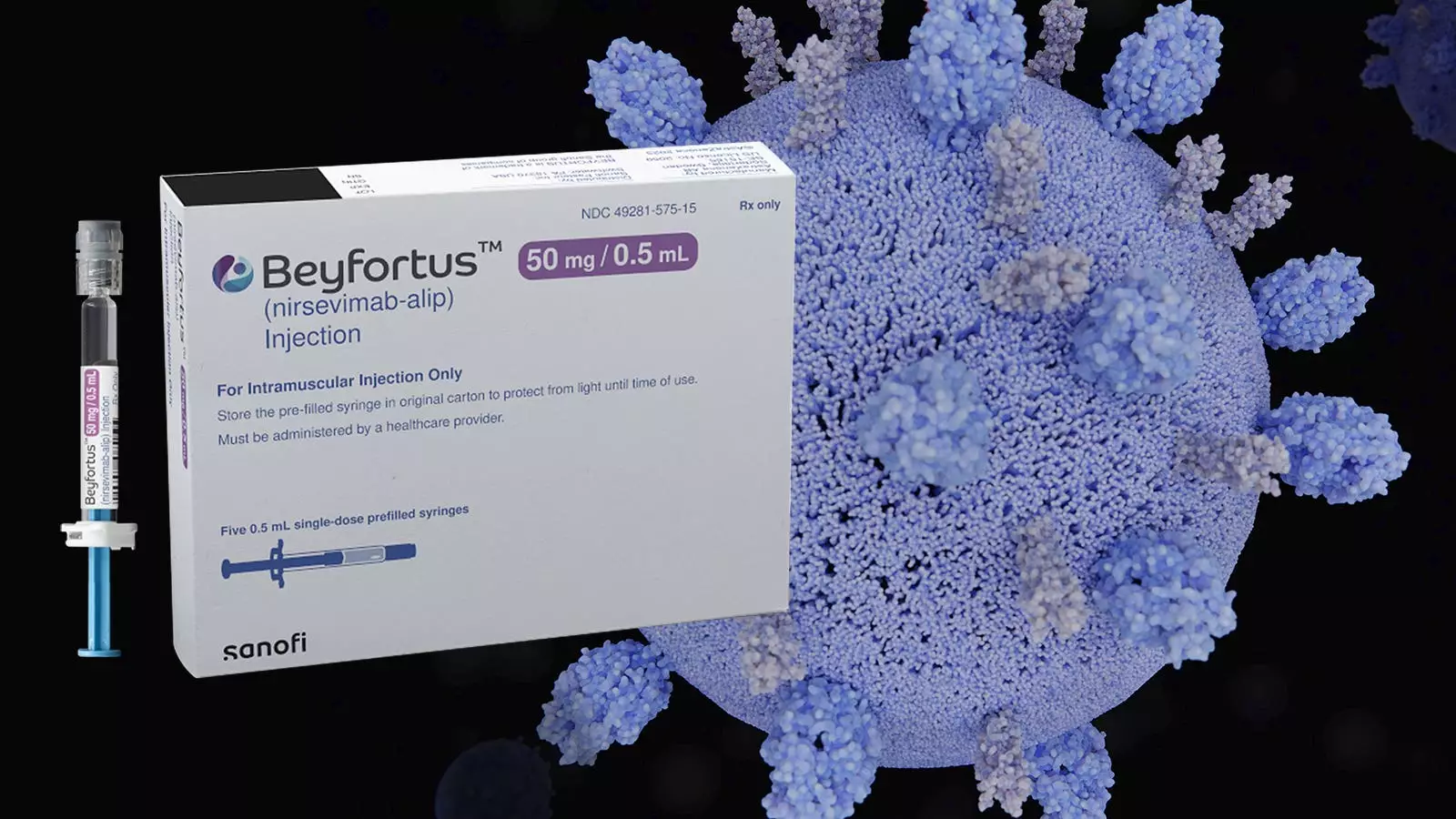The monoclonal antibody nirsevimab (Beyfortus) has shown promising results in protecting young infants against severe outcomes related to respiratory syncytial virus (RSV) infection. According to the French ENVIE study, nirsevimab was estimated to be 83% effective in preventing hospitalization from RSV bronchiolitis in infants younger than 12 months of age. The study also found that nirsevimab was 69.6% effective against RSV bronchiolitis leading to pediatric intensive care unit (PICU) admission and 67.2% effective against RSV-associated bronchiolitis requiring mechanical ventilation.
The researchers concluded that nirsevimab prophylaxis was particularly effective in preventing RSV-associated bronchiolitis leading to hospitalization among infants younger than 12 months of age, including severe cases. The study also highlighted the importance of administering nirsevimab to young infants prior to the circulation of RSV to maximize its effectiveness. However, effectiveness was lower (64.8%) among infants with at least one risk factor for bronchiolitis, although the absolute numbers in this group were small.
The findings of the ENVIE study were compared with those of prelicensure phase III trials conducted earlier. The MELODY trial reported a lower efficacy of 74.5% in preventing RSV-related lower respiratory tract infections requiring medical attention, while the HARMONIE trial showed a similar effectiveness of about 83% in preventing hospitalizations from RSV. The discrepancies in effectiveness could be attributed to the timing of outcome assessments, with the ENVIE study assessing effectiveness at 3 months compared to the 150 days assessment in the MELODY trial.
With the approval of nirsevimab by the FDA for passive immunization against RSV in infants, there are growing recommendations for its use, such as from the CDC’s Advisory Committee on Immunization Practices. The current recommendations involve a single dose of nirsevimab for infants younger than 8 months of age who are at high risk of RSV infection. This suggests that timely administration of nirsevimab at the beginning of the RSV outbreak season, similar to influenza vaccination campaigns, may enhance its overall effectiveness.
The authors acknowledged several limitations of the ENVIE study, including its observational design, which precluded drawing causative conclusions. Additionally, the study assessed nirsevimab effectiveness early in the free-of-charge nirsevimab campaign in France, which may have impacted the availability of the medication. Subgroup analyses were underpowered, indicating the need for further research to confirm the effectiveness of nirsevimab in different population groups.
While the ENVIE study demonstrated the effectiveness of nirsevimab in preventing severe outcomes of RSV infection in infants, further research is warranted to fully explore its potential benefits and limitations. Timely administration of nirsevimab in high-risk infants is crucial to maximizing its efficacy and reducing the burden of RSV-related hospitalizations in this vulnerable population.

Leave a Reply